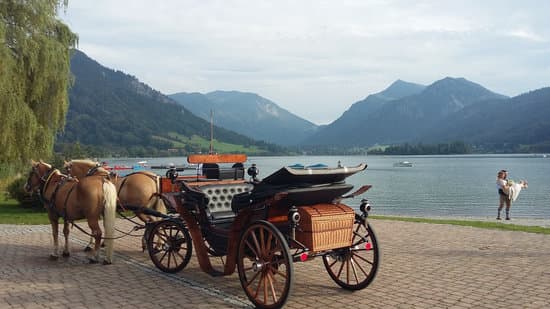
Are you considering a non-religious wedding ceremony? As the trend of non-religious ceremonies continues to grow, more couples are opting for personalized and meaningful wedding celebrations that reflect their beliefs and values. In this article, we will delve into the world of non-religious wedding ceremonies, exploring the benefits, planning process, and tips for creating a memorable and meaningful event.
Personalization is at the core of non-religious weddings, allowing couples the freedom to create a ceremony that truly represents their love and commitment to each other. Gone are the days of strict traditions and religious obligations – today’s couples are embracing the opportunity to infuse their own personalities and beliefs into their special day.
When planning a non-religious ceremony, there are many options to consider in terms of venue, officiants, and rituals. Whether you choose a scenic outdoor location or seek a unique officiant to lead your ceremony, the flexibility and freedom of choice in non-religious weddings make it possible for couples to create an event that is truly reflective of who they are as individuals and as a couple.
Benefits of Non-Religious Weddings
Non-religious wedding ceremonies offer several benefits that appeal to couples who are looking to personalize their special day. One of the primary advantages is the flexibility and freedom of choice that comes with a non-religious ceremony. Unlike traditional religious weddings, non-religious ceremonies allow couples to tailor every aspect of the event to reflect their unique relationship and values.
Additionally, non-religious weddings provide an opportunity for couples to infuse their own beliefs and philosophies into the ceremony. Whether it’s through personalized vows, selected readings, or meaningful rituals, couples can create a wedding that authentically represents who they are as individuals and as a couple. This freedom to design a ceremony that truly resonates with them is one of the most compelling reasons why many couples opt for a non-religious wedding.
Furthermore, non-religious ceremonies can be especially meaningful for couples who come from different cultural or religious backgrounds. By choosing a non-religious ceremony, they can create a wedding experience that is inclusive of both partners’ beliefs without favoring one over the other. In this way, choosing a non-religious option allows couples to celebrate their union in a way that honors both their similarities and differences.
| Benefits | Description |
|---|---|
| Flexibility and Choice | Non-religious ceremonies offer flexibility and freedom of choice in planning every aspect of the event. |
| Infusion of Personal Beliefs | Couples can infuse their own values and beliefs into the ceremony, creating an authentic representation of their relationship. |
| Inclusivity | Non-religious ceremonies allow couples from different cultural or religious backgrounds to celebrate without favoring one over the other. |
Planning a Non-Religious Ceremony
When planning a non-religious wedding ceremony, there are several important steps to keep in mind. One of the first decisions that needs to be made is the choice of venue.
Non-religious ceremonies can take place in a variety of locations, allowing couples to select a setting that holds personal significance for them. Whether it’s an outdoor garden, an art gallery, or a historic landmark, the options are endless when it comes to choosing the perfect venue for a non-religious ceremony.
Another crucial aspect of planning a non-religious ceremony is selecting an officiant who will conduct the wedding. Couples have the freedom to choose someone meaningful to them, such as a close friend or family member, to perform the ceremony. Alternatively, they can hire a professional officiant who specializes in non-religious weddings. It’s essential to find someone who understands and respects the couple’s values and beliefs in order to create a meaningful and personalized ceremony.
In addition to choosing a venue and officiant, couples also have the flexibility to design their own unique rituals and traditions for the ceremony. From handfasting ceremonies to unity candle rituals, there are countless ways for couples to infuse their personalities into their non-religious wedding ceremony. This level of customization allows couples to create a ceremony that reflects their individuality and love story.
| Aspect | Description |
|---|---|
| Venue Selection | Couples have flexibility in choosing venues like gardens, art galleries, or historic landmarks. |
| Officiant Selection | The couple can choose someone meaningful or hire a professional who respects their values. |
| Rituals & Traditions | Couples can design custom rituals like handfasting ceremonies or unity candle rituals. |
Writing Your Own Vows
When it comes to non-religious wedding ceremonies, one of the most significant ways to personalize the event is by writing your own vows. This allows couples to truly express their love and commitment in a way that reflects their unique relationship. Here are some tips for creating heartfelt and personalized vows:
- Reflect on your relationship: Take some time to think about your journey as a couple, the experiences you have shared, and the qualities you admire in each other. Use these reflections as inspiration for your vows.
- Be genuine and sincere: Your vows should come from the heart. Avoid clichés or trying to impress others with grand gestures. Speak honestly about your feelings and intentions towards your partner.
- Make promises: Vows are essentially promises that you make to each other. Consider what commitments you want to make in your marriage and express them in your vows.
Personalized vows can have a powerful emotional impact during a non-religious wedding ceremony. They provide an opportunity for couples to openly express their love, devotion, and promises in front of their loved ones. By taking the time to craft meaningful vows, couples can create a truly memorable and intimate moment within their wedding ceremony.
Non-Religious Wedding Traditions
When it comes to non-religious wedding ceremonies, couples have the freedom to create their own traditions and rituals that hold personal significance. This flexibility allows them to infuse their ceremony with their own values, beliefs, and cultural backgrounds. Here are some alternative rituals and traditions that couples can consider incorporating into their non-religious wedding ceremony:
- Unity Ceremony: Instead of a traditional unity candle or sand ceremony, couples can choose a unique symbol of unity that resonates with them. This could be planting a tree together, creating a piece of art, or even mixing different colored paints to represent the blending of their lives.
- Handfasting: This ancient Celtic ritual involves tying the couple’s hands together with a ribbon or cloth as a symbol of their commitment to each other. It’s a beautiful and meaningful gesture that can be customized to reflect the couple’s relationship.
- Ring Warming: During this ritual, the wedding rings are passed among the guests before they are exchanged. As each guest holds the rings, they can offer well wishes, blessings, or prayers for the couple, imbuing the rings with love and positive energy.
In addition to these alternative rituals, couples can also incorporate cultural and personal elements into their non-religious wedding ceremony. Whether it’s a special family tradition, a nod to their heritage, or a tribute to loved ones who have passed away, these personal touches add depth and meaning to the celebration.
Music and Readings
When planning a non-religious wedding ceremony, choosing the right music and readings can play a significant role in creating a meaningful and heartfelt atmosphere. From setting the tone for the ceremony to conveying personal sentiments, the selection of music and readings should reflect the values and beliefs of the couple.
Non-Religious Music
For couples opting for a non-religious wedding ceremony, there is an extensive range of music choices available. From classical pieces to contemporary songs, couples have the freedom to select music that resonates with them personally. Instrumental arrangements can be particularly impactful during key moments such as the processional and recessional, while carefully chosen lyrical songs can add depth and emotion to the ceremony.
Readings
Incorporating readings into a non-religious wedding ceremony offers an opportunity to share meaningful messages and reflections on love, commitment, and partnership. Poems, literary excerpts, or even personal writings can be included as part of the ceremony to express the couple’s values and aspirations. Reading selections should reflect shared interests or experiences that hold significance for both partners.
Significance of Music and Readings
The music played and readings shared during a non-religious wedding ceremony hold great significance in conveying the couple’s unique bond and celebrating their journey together. Whether it’s an instrumental piece that captures their love story or a reading that speaks to their mutual values, these elements contribute to creating a touching and unforgettable experience for all those present at the celebration.
Creating a Meaningful Ceremony
Personalized Rituals and Symbolism
When planning a non-religious wedding ceremony, couples have the opportunity to create personalized rituals and incorporate meaningful symbolism. This can include rituals such as unity ceremonies, where the couple combines different elements to symbolize their union, or creating unique traditions that reflect their shared values and beliefs. For example, some couples choose to plant a tree together during the ceremony, signifying the growth of their relationship.
Incorporating Family and Friends
Another way to create a meaningful non-religious ceremony is by involving close family members and friends in the celebration. Couples can consider having loved ones give readings or share personal stories during the ceremony. Including family members in the ritualistic aspects of the wedding, such as lighting candles or exchanging gifts, can also add a special touch to the occasion.
Honoring Cultural Heritage
Couples who come from diverse cultural backgrounds can use their non-religious wedding ceremony as an opportunity to honor their heritage. This can be achieved through incorporating cultural traditions, music, and food into the celebration. By showcasing aspects of their cultural heritage, couples can make their wedding ceremony not only personally meaningful but also inclusive of their background and upbringing.
Final Thoughts
In conclusion, non-religious wedding ceremonies are becoming an increasingly popular choice for couples who want to personalize their special day and infuse it with their own values and beliefs. The benefits of a non-religious wedding include the flexibility and freedom of choice, allowing couples to create a ceremony that truly reflects who they are as individuals and as a couple.
From planning the ceremony to writing personalized vows, incorporating meaningful traditions, music, and readings, there are countless ways for couples to create a meaningful and memorable non-religious wedding ceremony.
The key to a successful non-religious wedding ceremony lies in the creativity and personalization that the couple brings to the planning process. By choosing meaningful rituals, music, readings, and involving family and friends in the celebration, couples can create a ceremony that is not only unique but also deeply significant to them.
It is important for couples to embrace the freedom that comes with non-religious weddings and take full advantage of the opportunity to make their special day truly their own.
Ultimately, regardless of religious affiliation or lack thereof, all couples deserve a wedding ceremony that is authentic and meaningful to them. Non-religious ceremonies provide an opportunity for couples to express their love in their own way, surrounded by the people who mean the most to them.
As this trend continues to grow, it’s important for couples to feel empowered to embrace the freedom and creativity of non-religious wedding ceremonies in order to create a celebration that truly reflects their love and commitment.
Frequently Asked Questions
What Should Be Included in a Nonreligious Wedding Ceremony?
A nonreligious wedding ceremony can include elements such as personal vows, readings or poetry, music, and a declaration of intent to marry. It often focuses on the couple’s love and commitment to each other without any religious prayers or rituals. Personal touches and meaningful symbols that represent the couple’s relationship are also common in nonreligious ceremonies.
What Is a Non-Religious Marriage Ceremony?
A non-religious marriage ceremony is a wedding ceremony that does not incorporate any religious customs, traditions, or beliefs. It is typically tailored to reflect the values, personalities, and preferences of the couple getting married rather than following any specific religious guidelines. Non-religious ceremonies are often more flexible and customizable to suit the couple’s unique relationship.
What Is the Structure of a Non Denominational Wedding Ceremony?
The structure of a non-denominational wedding ceremony usually begins with an opening statement welcoming guests and acknowledging the importance of marriage. This is followed by personal vows exchanged by the couple, readings or poems chosen by the couple or their loved ones, and then concludes with a formal declaration of marriage and exchange of rings.
The central focus is on celebrating the love between the couple without incorporating religious rituals or prayers specific to any denomination.




